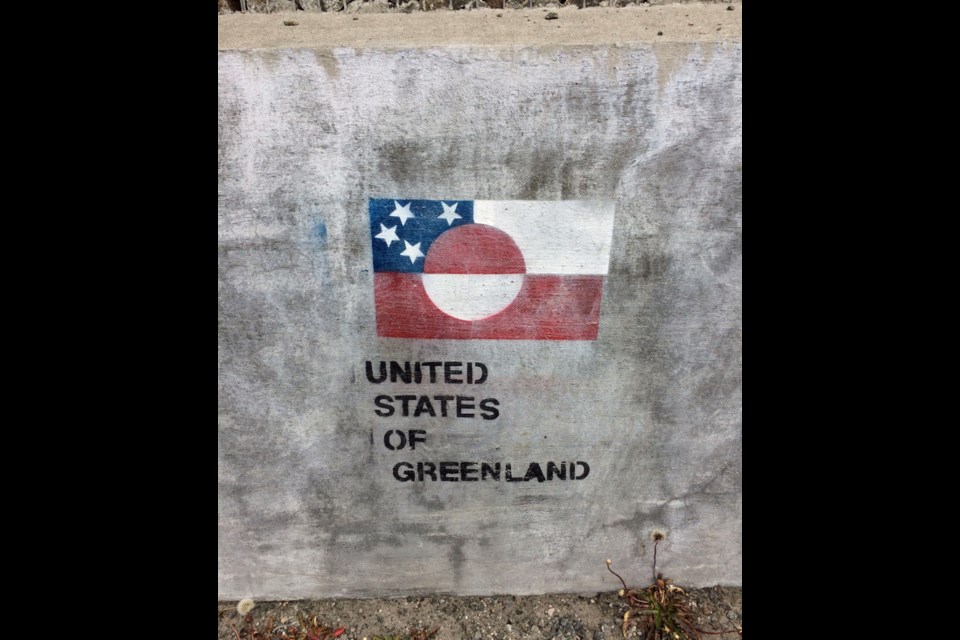Donald Trump’s statement Tuesday, Jan. 7 that he wants to buy Greenland and make the autonomous Danish territory part of the United States for national security purposes, while refusing to rule out the use of military or economic force to achieve his objectives, has been met with strong opposition.
Danish Prime Minister Mette Fredericksen has said Greenland is not for sale.
The BBC reported Wednesday that Germany and France have also warned Trump that a Greenland takeover would be met with reprisals from the NATO alliance, of which Denmark is a founding member.
German Chancellor Olaf Scholz told the BBC, “the principle of the inviolability of borders applies to every country... no matter whether it's a very small one or a very powerful one.”
French Foreign Minister Jean-Noël Barrot said the European Union would unquestionably intervene if another NATO country’s sovereign borders were under threat.
Trump first indicated his interest in Greenland in 2019 while he was the U.S. president.
“It's a complicated situation with Greenland because it’s an autonomous territory within the kingdom of Denmark,” said Gary Wilson, chair of the political science department at UNBC.
“It is pretty much autonomous, but it relies on Denmark for foreign affairs, defence and funding. It’s rich in natural resources, all sorts of rare earth metals, and the potential is there for Greenland to become independent if it can take advantage of resource development.
“Not everybody there is in favour of independence from Denmark. Some are quite happy with the current arrangement, which is a maximum form of self-government. But I think they’re trying to wean themselves off dependency on Denmark and I certainly don’t think they want to become a state within the United States that gives them less autonomy than they currently have.”
Wilson says it’s easy for Canadians to dismiss Trump and his outlandish statements, like wanting to taking over the Panama Canal or making Canada the 51st state.
“Part of me doesn’t put much stock in whatever comes out of Donald Trump’s mouth,” said Wilson. “But at the same time he’s a very powerful individual and he’s going to be the president of the United States, so you have to be mindful of some of the crazy things he says.
“Trump seems to think that all Greenlanders want to develop these natural resources and that’s not the case. There’s very deep divisions within Greenlandic society and politics about developing uranium and all these other mining (projects) and Trump tends to see things in a very simplistic way, which is how he approaches the world in general. He doesn’t understand at all the nuances or the history or anything to do with Greenland’s relationship with Denmark and how that’s evolved the last several decades.”
In 2016, Wilson attended a conference in the capital, Nuuk, and toured the country while conducting research on Inuit self-governments.
During that trip he went north to the town of Sisimuit and spotted some graffiti artwork painted on a wall. It was a Greenlandic flag superimposed over an American flag above the words, United States of Greenland.
”That was before Donald Trump, it was 2016, before he came into office and before he ever spoke about acquiring Greenland,” said Wilson. “Harry Truman tried to acquire Greenland in the 1950s. It is a very strategic place and Trump is not incorrect in that regard. It has military importance but it also has economic importance in terms of access to raw materials and resources.”
Of a population of about 58,000, 88 per cent of Greenlanders are Inuit, known as Kalaallit, and they share lifestyle similarities with the Inuit of Canada’s Arctic territories. That connection helped spark Wilson’s interest in studying Greenland and its ideas on self-government.
“This is really the world’s first Indigenous state that's coming into being, that’s pretty rare around the world,” said Wilson.
“They got self-rule in 1979, which gave them more autonomy, and they got self-government in 2008. They’re still quite dependent financially on Denmark but if they were to become independent that kind of puts that into jeopardy. If you’re independent, how do you fund all the programs that governments offer?”

.png;w=120;h=80;mode=crop)

